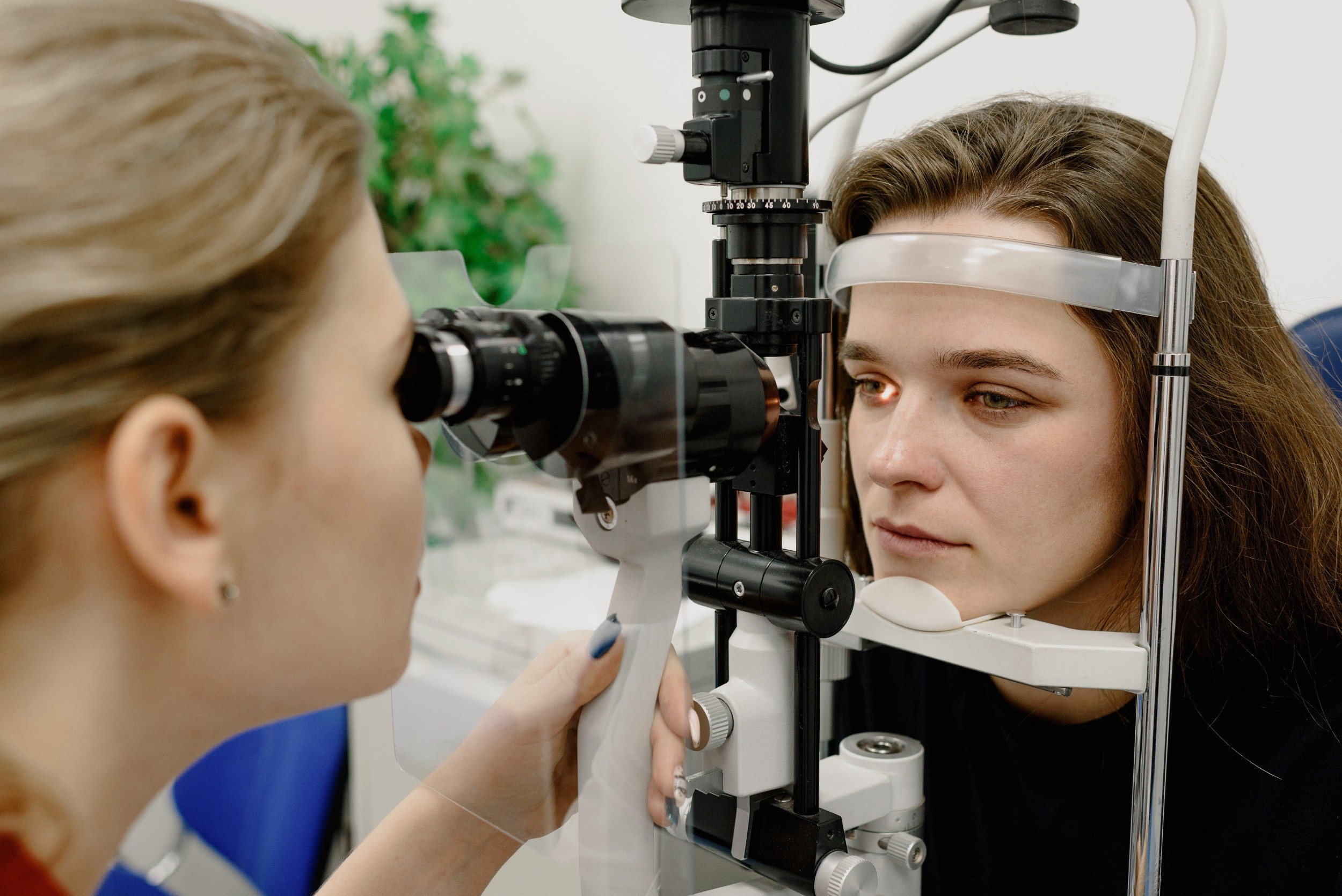Eye healthcare professionals explained
Dispensing opticians fit glasses and contact lenses working from the prescriptions written by an ophthalmic practitioner or ophthalmologist. They also fit and dispense low vision aids such as magnifying glasses or telescopic spectacles. They do not do eye tests.
A dispensing optician can give you advice on types of lenses, such as single-vision or bifocal (lenses with 2 distinct optical powers) and help you to choose frames and other optical aids. They can also give you advice about wearing and caring for your glasses or contact lenses.
An optometrist is trained to recognise abnormalities in your eyes.
They examine the internal and external structure of your eyes to detect conditions such as glaucoma, macular degeneration and cataracts.
They may also test your ability to focus and coordinate your eyes and see depth and colours accurately. If necessary, the optometrist will refer you to your GP or a hospital eye clinic for further investigations.
Optometrists can prescribe and fit glasses, contact lenses and low vision aids, and, if trained to do so, medicines to treat eye conditions.
Ophthalmic practitioners are qualified healthcare professionals specialising in eyecare.
Like optometrists, they examine eyes, test sight, diagnose abnormalities and prescribe suitable corrective lenses.
Ophthalmologists (eye surgeons) are doctors that specialise in the medical and surgical care of the eyes and visual system.
They also look into the prevention of eye disease and injury. An ophthalmologist treats people of all ages, from premature babies to the elderly.
Conditions dealt with in ophthalmology can include eye trauma, cataracts, diabetic eye conditions such as diabetic retinopathy, as well as congenital and genetic eye problems.
Orthoptists are specialists in squints and eye movement disorders. They investigate and identify problems relating to the development of the visual system, including:
- squint and lazy eyes in children (orthoptists often do vision screening of children in schools and community health centres)
- adults with learning difficulties
- adults with double vision or a binocular vision problem


